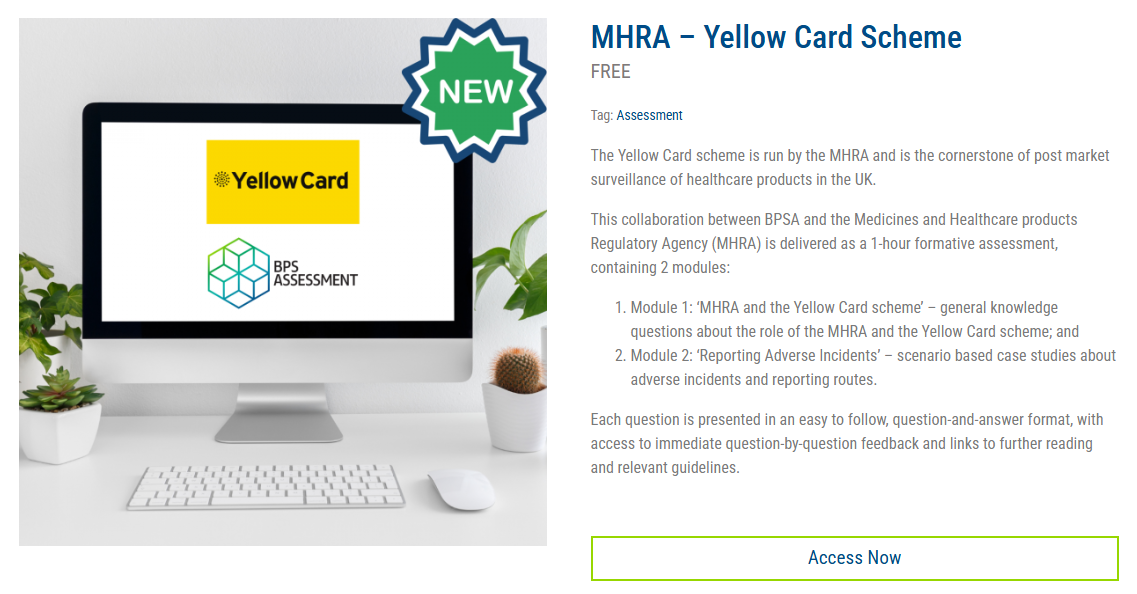
(Screenshot of the new and free MHRA - Yellow Card scheme Assessment on the BPS Assessment website.)
Our genetic differences can play a major role in why people can experience very different responses to the same medication. A medicine may still cause side effects and even adverse reactions in some people, despite thorough research and clinical trials, and adverse incidents can occur when using medical devices. In order to safeguard patients and ensure the quality and efficacy of healthcare products, the Medicines and Healthcare products Regulatory Agency (MHRA) runs the Yellow Card scheme.
To broaden awareness and encourage greater use of the Yellow Card scheme, the MHRA has partnered with the British Pharmacological Society and its learning arm, BPS Assessment, to develop a new and free online learning resource: the MHRA – Yellow Card scheme Assessment. Designed to support those working across healthcare, the resource promotes a better understanding of what the scheme is, when to report, and how to submit a report effectively.
What is the Yellow Card scheme?
The Yellow Card scheme was introduced in the UK in 1964 following the thalidomide crisis, to establish an independent means of monitoring the side effects and adverse reactions of medications and other medical products.
Healthcare providers are encouraged to use the scheme, but patients and carers can also report events if they suspect a particular safety risk, such as side effects or adverse incidents associated with a medication, medical device, blood product, vaccine or even e-cigarettes. To learn more about how to report an incident, including the step-by-step process, visit the MHRA’s official guidance on how to report to the Yellow Card scheme.
The collaboration: MHRA x & the British Pharmacological Society
To support the proper use of the Yellow Card scheme, the MHRA has partnered with the British Pharmacological Society and its learning arm, BPS Assessment, to develop the new MHRA – Yellow Card Scheme Assessment, which is free to access on the BPS Assessment platform.
This resource takes the form of a one-hour assessment, split into two modules, and is designed to enhance healthcare providers’ understanding of the Yellow Card scheme. Rather than presenting information directly, it reinforces key concepts through applied questions, helping clinicians, pharmacists, and others to test their knowledge, build confidence in recognising adverse events, and retain practical skills on when and how to report them, ultimately supporting safer prescribing and patient care.
To learn more and get free access to the resource, visit the BPS Assessment platform.
Benefits for clinicians and patients
Increasing awareness and use of the Yellow Card scheme will support healthcare providers in recognising and reporting adverse events more confidently, ultimately contributing to safer prescribing practices. Greater participation helps ensure that potential safety risks are identified more quickly, supporting better patient outcomes and strengthening the overall monitoring of medicines, vaccines, and medical devices.
By building on education and awareness, this collaboration between regulators and educators reinforces the importance of reporting and monitoring, helping to protect patients and empower clinicians in their vital role in medication safety.
Access the MHRA – Yellow Card Assessment for free now.